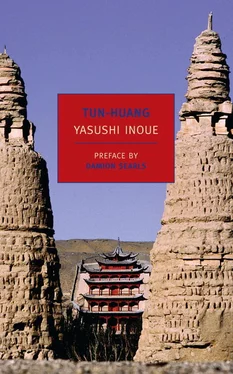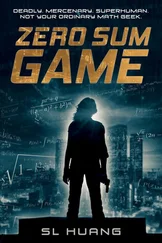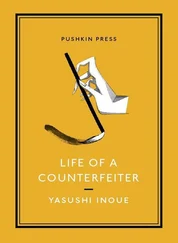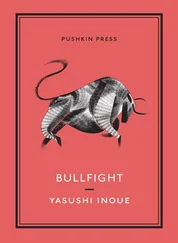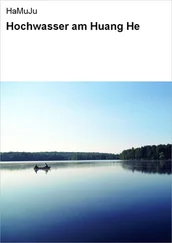Hsing-te asked Yen-hui why he had made no preparations to leave. Yen-hui replied, “I can leave alone at any time. Of all the things in the palace, it’s difficult to decide which objects are the most valuable. The time until dawn is much too short.” Then Yen-hui sank into his chair again.
Hsing-te called in Yen-hui’s subordinates one after another to ensure that the evacuation order had been given to the civilians. The orders were definitely being transmitted through a series of organizations. It was just that the orders had not yet reached the outskirts of town. Hsing-te left Yen-hui’s palace and, feeling that he could not leave matters in the governor’s hands alone, he immediately devised plans for his own men to relay the evacuation order to the civilians.
However, even with this method, it was not possible to reach the entire population. And since the order was not Yen-hui’s, many were dubious about its reliability.
Toward dawn, when the night sky was beginning to lighten, a clamor finally arose in the town. Men and women ran out into the roads from their houses, raised their arms into the air and sat on the ground; others shouted wildly, running from one alley to another.
Hsing-te held an emergency roll call for the defense troops in the square in the northwest, and ordered the whole force immediately to arms. By this time the entire town was chaotic with the fleeing civilians.
All the districts and roads overflowed with people and their baggage. It was as though someone had upset a beehive.
When the night was over, the majority of the defense troops as well as Wang-li’s soldiers were at battle stations. A section of the troops had opened West Gate and was controlling the traffic of refugees. However, by noon only a few civilians with their goods had left the city. The streets were still blocked with people, household goods, and a small number of horses and camels. The confusion appeared endless.
Just past noon, smoke signals rose from the beacon tower at East Gate. These signals indicated to Yüan-hao’s army, who were thirty miles east of the city, that they could enter at any time. The two thousand soldiers in the city already knew what was expected of them. Yüan-hao’s army was to enter by Capital Gate. Three hundred archers were stationed beneath the adjoining wall. Each man was equipped with fifty arrows, and a separate supply of twenty thousand arrows was ready. All these had come from Yen-hui’s armory.
Hsing-te was at Yen-hui’s palace when the smoke signal was given. He was trying to hurry Yen-hui’s family and retainers, a large group of about thirty, out of the city. But when the time came for Yen-hui to leave, he suddenly became very busy. He didn’t bring out any goods, but he kept returning to his palace or sending others in. The task of gathering together his family was not an easy one. Hsing-te had planned to have Chiao-chiao leave with Yen-hui and his family, but since he could not tell when Yen-hui would be ready, he gave the girl a soldier escort and had her leave separately.
By the time Hsing-te had given up on Yen-hui and had left the palace, the smoke signals had risen high into the unusually windless winter sky. As Hsing-te arrived at Capital Gate on horseback, he saw the small figure of his commander slowly descending from the wall in his usual manner. Hsing-te joined Wang-li, who said with a decisive expression on his face, “We’ll do it.”
“Have the troops agreed?” Hsing-te wanted confirmation.
“They will fight more valiantly today than they ever have before.”
That was all Wang-li would say. Then he told Hsing-te that he would not die until Li Yüan-hao’s head had been raised on a pole. Shortly after this, Wang-li left the city with a hundred cavalrymen to greet the Hsi-hsia army.
At the same time, Hsing-te climbed the wall, accompanied by two commanders of the archery unit. One man was tall and stout, while the other was slight; both were valiant survivors of many frontier battles fought under Wang-li.
The plains were hushed. Across the silent landscape, Hsing-te could see the formations of the Hsi-hsia army approaching quietly in the distance. The numerous standards grouped together glittered in the sun and made this procession different from any other Hsing-te had witnessed. Were they the uniformed guards who attended Yüan-hao, the Hsi-hsia emperor?
The army was not stationary, but its progress was as slow as a herd of cows, as it barely seemed to move toward the city. Hsing-te could also see Wang-li’s cavalry force gradually advancing toward the Hsi-hsia army. Its movement, too, was hardly perceptible.
Hsing-te and the two archers had a dull, restless time during their long wait. The three men said nothing. If they were to speak, it seemed their momentous secret might be divulged. They had fallen into that peculiar frame of mind. As they waited, however, they saw the Hsi-hsia vanguard and Wang-li’s cavalry meet in the plains and then intermingle. For a short while the columns of men and horses appeared to have stopped, then the entire formation started once more for the city gate. When they started the second time, their progress appeared faster.
The vanguard was composed of about one hundred Hsi-hsia cavalrymen, followed at a short distance by Wang-li’s unit. Shortly behind Wang-li’s unit was the group bearing banners, followed by another unit of about thirty cavalrymen. Yüan-hao was most likely in that unit. Infantrymen, camel caravans, and cavalrymen followed in small formations in their assigned positions. On the wall, Hsing-te broke the silence and asked, “Are there five thousand?”
“No, three thousand.” The slight commander also spoke for the first time, correcting Hsing-te’s estimate. As the formation approached, the heavy-set commander signalled to the other with his eyes, and then went down the wall to his post.
Hsing-te had no direct responsibility in the coming battle. His own unit and Yen-hui’s forces were consolidated under Wang-li’s command. If he desired, he was free to watch the approaching battle from the wall, to see its development and result from start to finish.
Hsing-te saw the Hsi-hsia vanguard of one hundred cavalrymen enter Capital Gate. As he looked down, he observed the expressions on the men’s faces were extremely ill-humored and sullen. Almost all the horses were black, and the total impression of that unit was of complete exhaustion from continuous battles. It was some time after this unit had passed through the gate that Wang-li’s men entered. Hsing-te watched as the Hsi-hsia vanguard were immediately led deep into the maze of the town by the heavy-set commander who had waited with him. The hoofbeats of the horses echoed ominously.
Hsing-te watched breathlessly as Wang-li’s unit gradually approached the gate and passed through it. The instant the last cavalryman had disappeared through the wall, he saw the heavy gates clang shut.
At that same instant, Hsing-te heard an astonishingly loud bellow from the slight commander at his side. He shouted and roared. At the same moment, the archers who had been waiting below climbed up the wall.
Hsing-te looked out toward the plains. He saw in that moment the colorless, ominously hushed plains and the formations of the Hsi-hsia army moving in complete silence. Nearer to, he saw the uniformed guards approaching the gate, and this unit, too, was hushed. The distance between the guards and the gate was now less than two hundred feet. The many standards that indicated Yüan-hao’s position hid him from view. Hsing-te observed this scene for but a moment; the peace was suddenly cut short.
Hsing-te watched it happen. Near the gate each and every one of the guards’ horses reared, dust rose thickly, and the countless arrows shot from the wall converged on the spot as if drawn by a magnet.
Читать дальше
